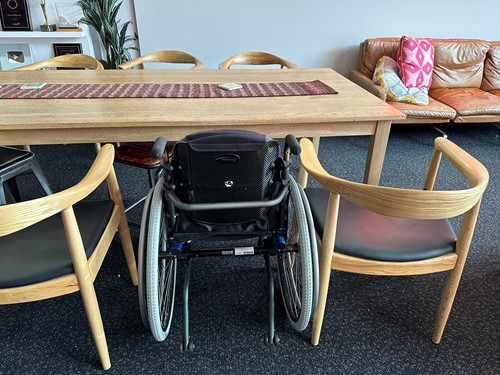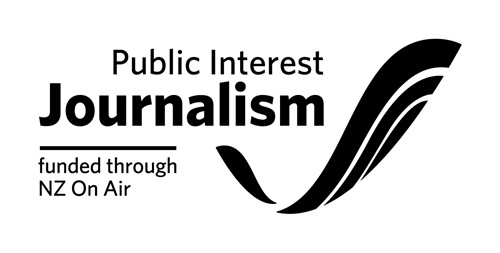“Whaikaha (Ministry of Disabled People) has the potential in partnership with others to change the lives of disabled people. I stress the word partnership, because we are 1 agency, and we have a very specific mandate. We are not responsible for education, housing, employment, and transport – all of the things that critically touch the lives of disabled people and our families,” Tesoriero says.
“What we are responsible for is helping those agencies and being a system leader … we won't change lives on our own, but in partnership with our community and in partnership with other Government agencies, I believe we are at the beginning of a really magic time for our community.”
There’s funding coming for the disability community. Tesoriero says $100 million has been allocated for the roll out of the transformation of the disability support system in line with the Enabling Good Lives (EGL) approach.
For those who don’t know, the EGL approach will give authority to disabled people to use their government funding in a way that best suits them. After successful trials in regional New Zealand, Labour has committed to delivering the programme nationwide.
“We have some money held on contingency that we’ll be drawing down, hopefully in June, to begin that process … [EGL] will be led by the community. More personalised budgeting, connectors and plans for how disabled people want to spend their budget to live a good life.”
“Cabinet will need to make some decisions on whether that's done on a regional basis or a population basis … Certainly, the community's been very clear in its expectations that we need those foundational pieces laid out around the country, which is those regional leadership groups. So there's not a date for a particular region at this point.”
“We're working really closely with the community around this next phase of bringing that experience to more people.”
Across New Zealand, concerns have been raised that there is a national disability support worker shortage.
“The issue is of considerable concern to us at Whaikaha,” Tesoriero says.
“We will need to be innovative … we've got a piece of work that we’ve just got underway on that … we want to make sure that disabled people we support have a workforce that's available, that’s skilled and trained, and that people are not left without the appropriate supports in their daily life.”
“It's not an issue which Whaikaha is facing alone. Workforce issues are right across the broader health and disability sector … we’ve been working with those other health entities – primarily, Te Whatu Ora – to look at how we can respond to this. It's also globally a real issue, particularly since the emergence of Covid.”
“You only need to look at countries we often compare ourselves to. They are facing these same critical workforce issues … we're also starting ourselves on a more bespoke set of solutions for the community that we serve.”
It’s no secret that employment is a major issue for the disabled community. Graduate internships are an invaluable opportunity for those within the community that a Ministry serves to gain work experience.
I asked Tesoriero whether the Ministry was looking to introduce Graduate Internships, as other Ministries do.
“We’ve been doing some really exciting work with the Public Service Commission around increasing the number of disabled people in the public service,” she says.
“In terms of our own recruitment processes, we will certainly look to do that as part of building career pathways for disabled people. We're just not in a position with where we're at with the establishment to do that right now.”

Disability employment statistics reveal a harsh reality. Statistics NZ data shows that only 41.5% of working-age disabled people are employed, compared to 80.4% of non-disabled working-age people. Whaikaha will collaborate where needed to get us where we need to be.
“The stats themselves suggest we have a long way to go. That's going to require quite some effort to lift those numbers,” Tesoriero says.
“I think quite some effort needs to be taken in collaboration between Government and the private sector and the community … because in reality the employment stakes have not really improved over quite a long period of time.”
“Clearly continuing to do what we've always done is not going to change those numbers.”
Whaikaha is an influencer. Tesoriero says they do, and will, lean into other agencies where required.
“For us it's really about taking the opportunities to influence agencies in areas that are really impacting the lives of disabled people. I'm really aware of some of the issues being raised by the community around immigration. Last year, the United Nations Committee on the Rights of Persons with Disabilities made a number of recommendations to New Zealand, in fact, 60 recommendations about things that need to be done to improve the lives of disabled people.”
“The way in which the Government will need to respond to those recommendations, there will be opportunities in there as well, to be working with other agencies on those key things that have been identified as needing to change.”
Whaikaha was established as a result of decades of advocacy. Its creation has given the disabled community a powerful new platform, one that Tesoriero is thankful for.
“Our community has evolved over many years. When I think about the rights and freedoms that I have, I know that it's considerably different than those who went before me. I know young disabled people now have benefited from all of the advocacy that my generation and those who went before me have done, and we’ve got amazing young disabled leaders coming through.”
“Our voices (disabled people) are becoming louder and more mobilised and are starting to be heard across Government and across society more generally, more now than in the past. That said, there's a far greater opportunity for more disabled people to be at the table, many more opportunities for that voice to grow and for mobilisation of our community to increase.”
“We've moved so far … partly what led to the establishment of Whaikaha was that advocacy. So I think the strength of our community and the readiness of our community to embrace change and to be part of that change is the best it's ever been. So that's a great, great platform to build from.”
It’s early days for the Ministry of Disabled People, but we’re on the right track, Tesoriero says.
“We need to finish establishing our Ministry. We've probably got another couple of years to do that. That's putting all the nuts and bolts into place to make sure we have built the foundations properly, so that’s the systems, processes, policies, and things. We also have to deliver on bringing an Enabling Good Lives (EGL) experience to more people in New Zealand.” Tesoriero says. “That’s our mandate”.
On a personal note, I asked Tesoriero whether it was time New Zealand hosted the Paralympics. She’s a Paralympian, winning Gold and 2 Bronze medals in Beijing 2008 in cycling.
She’d love to see the Games here.
“It would be incredible if New Zealand ever had the opportunity to host the Paralympic Games.”
“I think we've started to show that we can host international sports events really well. The cricket. We've got the FIFA Women's World Cup. Obviously, we've had the Rugby World Cup … so, you know, fingers crossed.”



